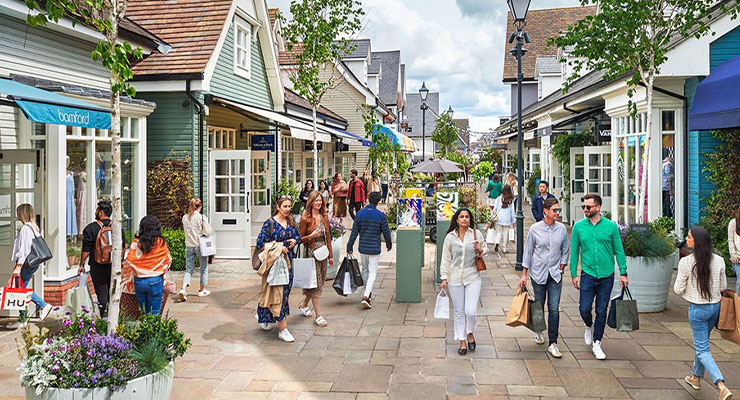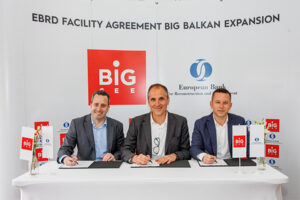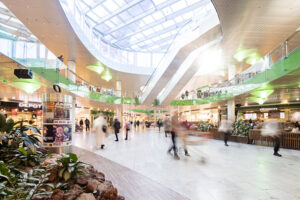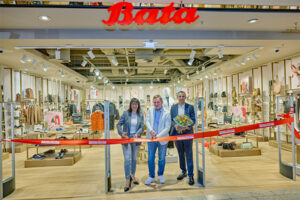The designer outlet industry has strong links with the hospitality industry. Although outlet managements rarely run hotels themselves, the cooperation between the hotel industry and the outlet sector is very close – the more touristy the location, the closer.
“As well as supporting organizations such as the WTTC, offering tax-free shopping facilities for international guests and building relationships at international travel conventions, leading operators have for many years chosen to recruit center managers from the hospitality industry so that hotel best practice is embedded in daily operational activity,” explains Ken Gunn, founder and Managing Director of Ken Gunn Consulting. “Unlike shopping centers, many designer outlet centers employ specialist tourism managers tasked with coordinating specific events like, for example, Chinese New Year and positioning assets as essential destinations on regional tourist circuits.”
Big companies like McArthurGlen, for example, have offices in India, Dubai, China, or SE Asia, where their employees actively work to get the different outlet locations onto travel routes. They are also increasingly active at trade fairs and tourism events worldwide to present their European locations. Another critical factor is the close cooperation with local and national tourist organizations. For example, McArthurGlen’s location, Parndorf, is working closely with the Austrian National Tourist Office. “This is a great added value, especially when we want to enter a new market, as the office’s experts know the markets inside out and advise us in the best possible way,” explains Mario Schwann, General Manager of Designer Outlet Parndorf. “Our center also cooperates with the Austrian National Tourist Office to offer special intercultural training programs. Customers from Eastern Europe, Asian customers, or visitors from the Middle East have different behaviors, and we teach these to our employees.”
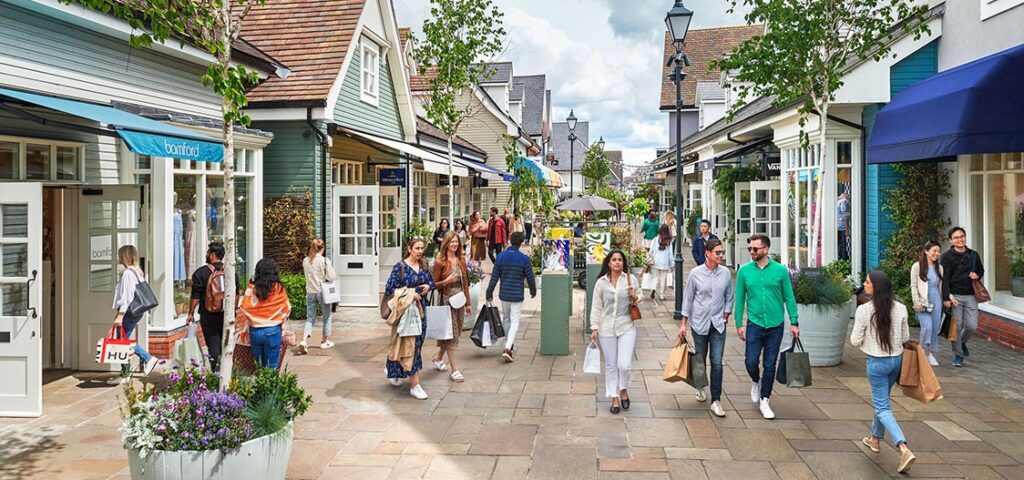
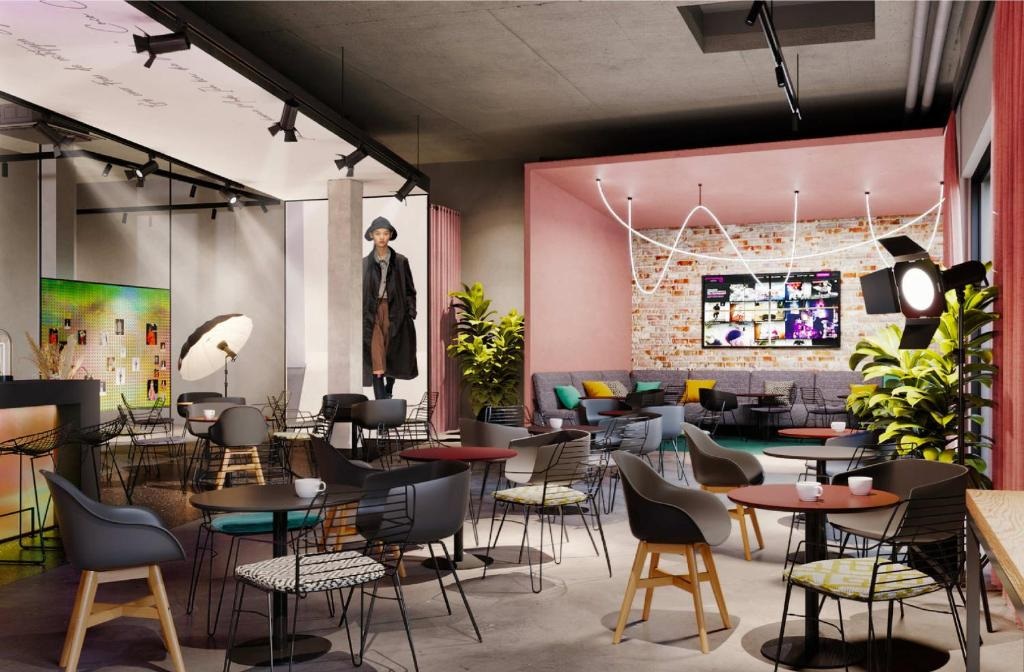
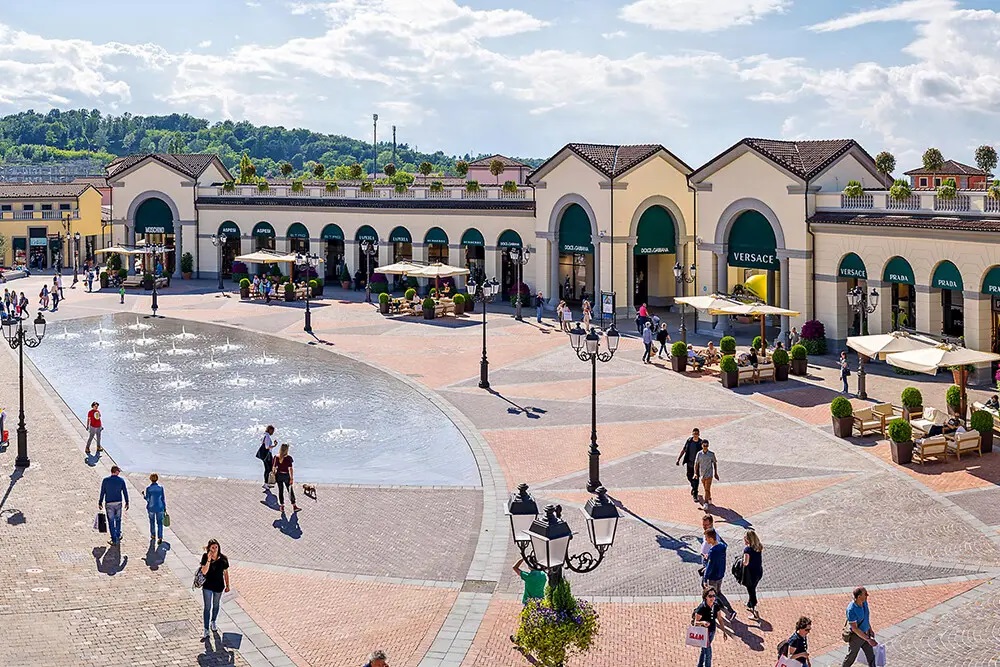
Designer Outlets as part of the holistic vacation experience
In many cases, this close integration with the tourism sector has formed partnerships with nearby hotels, which can often also be found on outlet websites. One example of this is Bicester Village in the UK. The outlet has a subsection for hotels and excursion destinations in the region on its homepage. Not only are the nearest hotels listed here, but visitors can also find entire day trips, restaurant tips in the area, and hotels and packages in London. With articles entitled “Romantic days out in the Cotswolds,” “7 of the finest restaurants in the Cotswolds,” or “Your guide to the best hotels in the Cotswolds,” the designer outlet takes a back seat. Still, the holistic experience comes to the fore.
Another example from many in the outlet industry is McArthurGlen’s location in Serravalle, Italy. The designer outlet advertises a 70 percent discount and presents small beauty hotels in the region on its online presence, points out wine tours or cooking classes, and describes the most beautiful bike tours. The location wants to be seen as part of a tourist destination.
Integration of hotels
“These examples use the association with quality hotels and alignment with wider regional values to reinforce their credentials as luxury destinations for elite guests,” says Gunn. “However, other outlet centers have gone further and incorporated hotels on site.” Springfields in the East of England, for example, incorporated a Travelodge hotel (3-star) as part of its extension in 2007, Gunwharf Quays has Holiday Inn Express (3-star), Resorts World (Birmingham) has a Genting Hotel (4-star). London Designer Outlet has Premier Inn (3-star), Ibis (3-star), and Hilton (4-star) hotels. At the beginning of February 2024, Moxy (3-star) opened at Outletcity Metzingen.
In Germany, the Van der Valk hotel group plans to develop a new outlet village next to a 4-star hotel and a new holiday village at Wittenburg Village. “This integrated, mixed-use approach boosts resident-based expenditure potential by more than 60%, bringing substantial benefits to retail performance and asset values”, explains Gunn. Similar examples include Genting Highlands Resort, Pahang, Malaysia – 7 Genting hotels; Viaport Marina, Tuzla, Turkey – Crowne Plaza Hotel (4-Star) and Lihpao Resort, Taichung City, Taiwan – Fullon Hotel (5-Star).

Kenn Gunn
Ken Gunn is the Managing Director of Ken Gunn Consulting. Ken Gunn Consulting is one of the most experienced, respected and influential consultancies serving the global outlet industry.
Future utilization of potential
Delivering exceptional and extended hospitality for guests is an important aspect of outlet management. With many outlet centers located in leading tourist zones, strong guest synergies mean that hotels play an important role in positioning outlet destinations, extending reasons to visit, attracting upscale guests, and generating additional revenue. “However, out of 211 trading outlet centers in Europe, less than 10% have hotels at their sites”, knows Gunn.
Due to its nature, the outlet industry may be further ahead than the shopping center industry when it comes to cooperation between the hotel and retail industries. Overall, it is also true that natural synergies are only slowly being exploited. Hotels can and should play a more critical role in asset strategy in the future. Gunn also confirms this: “As the outlet format continues to evolve, it is inevitable that hotels will become increasingly important in the development and performance of new locations.”
